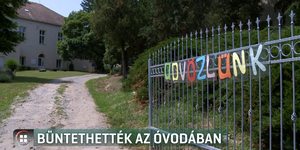Gyurcsany Package Meets Strong Opposition
Opposition parties and interest groups in Hungary are questioning the direction of the government's reform policy and resisting the announced budget cuts. Political analysts cannot rule out social unrest and economic turmoil in the coming months.
There are few social organizations and lobbyists in Hungary who praise the proposed budget cuts of the government. The Hungarian Chamber of Commerce and Industry claims that the Gyurcsany administration’s program hurts competition, raises inflation and instability and increases unemployment. The Chamber claims that next year’s budget adjustment would be financed by a 92 percent increase in taxes.
László Parragh, the Chamber’s president, while agreeing with the administration’s efforts to balance the budget, argues that the cuts will hurt businesses and favor only the political elite. He also doubts that the proposed layoffs of civil servants would have enough of an impact on the large bureaucracy. He predicts that some future measures will be blocked either by the parliament or the Contitutional Court. The chamber believes the tax increases will actually cut rather than increase tax revenues.
According to Sociologist István Kemény with such severe budget cuts, maintaining or improving the current level of government services would be impossible. He also doubts that the healthcare reforms would lower government expenditures, instead it would require increase of taxes. Kemeny would rather introduce property taxes but concedes that in the short run for political reasons the government can only tighten the current taxes.
According to a survey conducted in May by the Hungarian research group, Marketing Centrum, the majority of those polled supported the reforms. However, 69 percent of the population equated the reforms with modernization, and only 49 percent equated it with a tightened budget. While 62 percent opposed higher tuition fees, about the same percentage favored immediate healthcare reform. The majority said that a higher level of care could be achieved with competing insurance companies. At any rate, citizens already feel the effects of higher taxes, increased utility fees, more expensive public transportation and probably, tuition and medical appointment fees.
The governing party is finding it hard to produce a comprehensive reform plan. Even the health reform is still in the works, disagreement overshadows such issues as the supervision of healthcare institutions, the standardized care for outpatients and tighter control of unofficial medical payments to doctors and nurses. The public is tired of the declining level of care, and bribes to medical officials: two thirds of those surveyed by the Marketing Centrum think the current system is outdated and wasteful.
Prime Minister Ferenc Gyurcsány, who was seen as a "godsend" only two months ago by his party, dramatically lost popularit.y According to current polls, the local elections, due in October, could easily bring the demise of the prsent coalition parties. The real question is how the left will perform in the suburbian districts of Budapest. If they do not do well, there could be an internal revolution and changes in the leadership of the socialist party.
Due to the cloudy prospects, the opposition party's “We are worse off than four years ago” campaign motto may prove to be true in 2010. The government's propaganda claims that burdens of the adjustment has to be divided between the people, businesses and the government, but in reality the middle class will suffer the most. The Hungarian tax system is extremely unfair: 1,6 million people pay 90 percent of personal income taxes, while the remaining 2,7 million pay 10 percent. The new reforms would not change the distribution of the tax burden. The increase in energy costs and tuition would also mostly affect the middle class.














